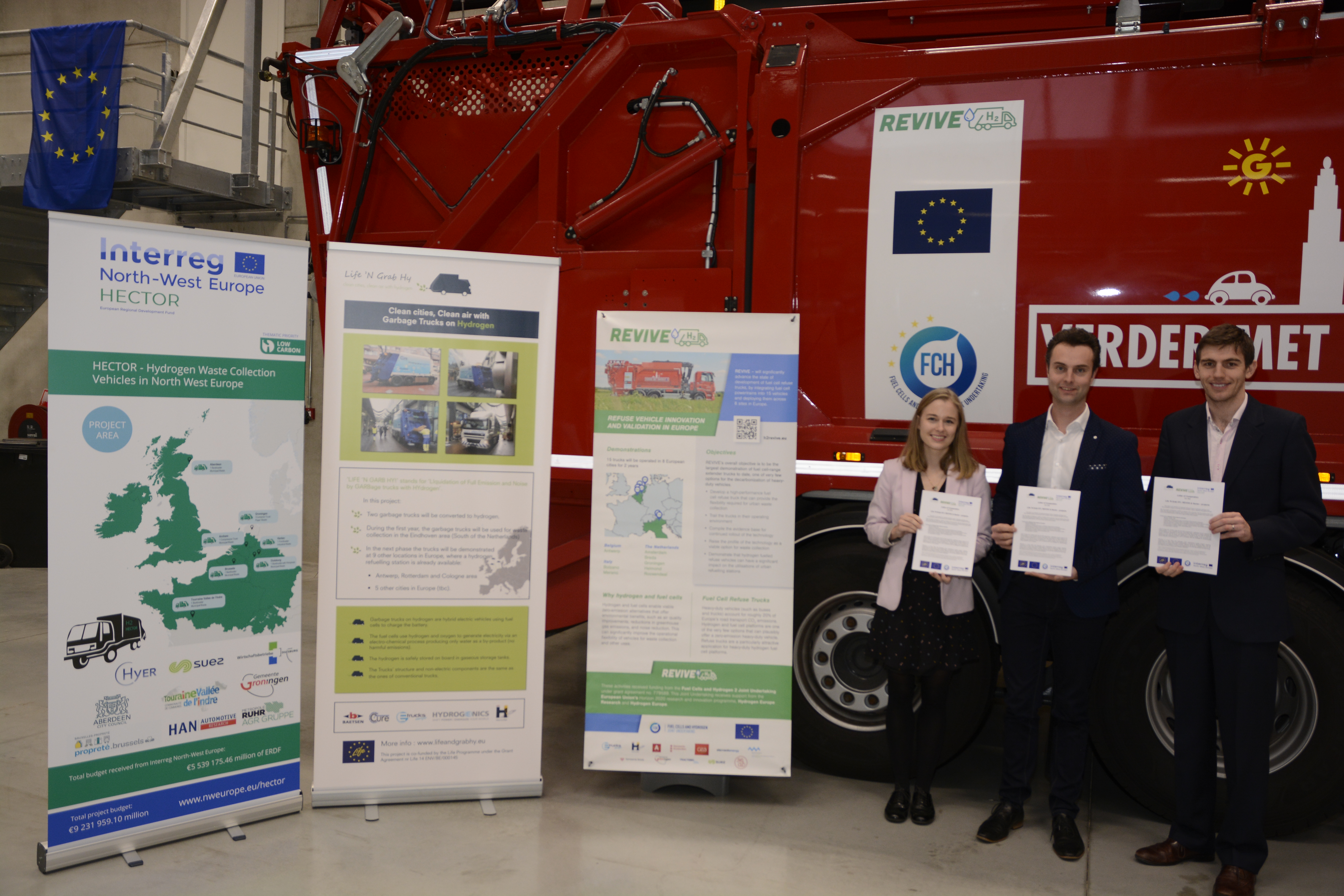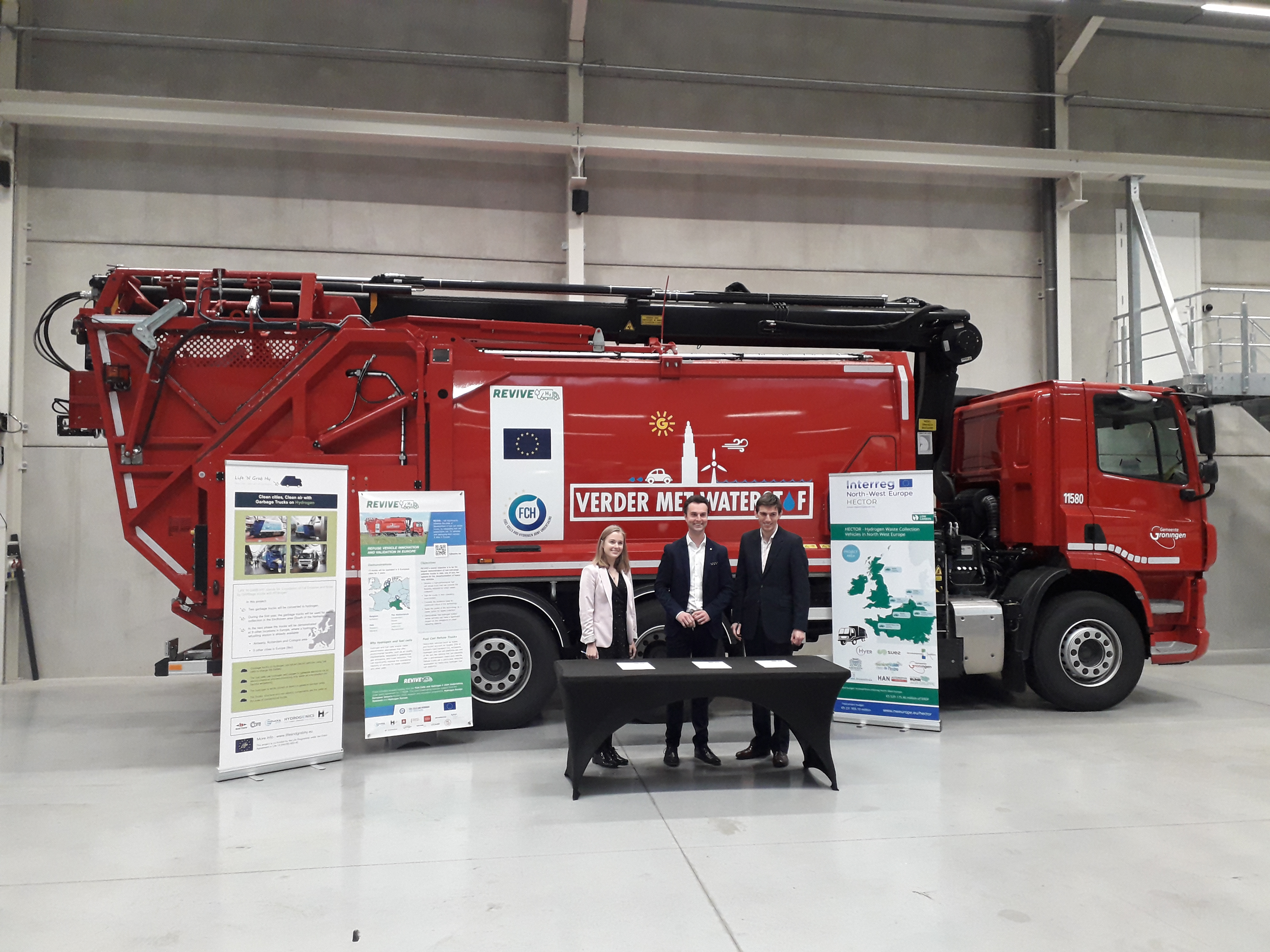On Friday the 6th of December 2019, three European projects, developing and deploying refuse trucks powered by fuel cells and hydrogen, signed a letter of cooperation. The signing took place during a workshop of the Revive project at the E-Trucks Europe factory in Lommel, Belgium. The workshop discussed the potential and first experiences with fuel cell garbage trucks, and the future outlook for business cases and large-scale deployment. The three projects are advancing with the deployment of the technologies needed to cut emissions from road transport caused by the combustion engines inside of waste collection vehicles. All three projects aim to showcase that fuel cell refuse trucks offer a non-polluting and quieter alternative to conventional diesel trucks.
The Revive project is funded by the fuel cell and hydrogen joint undertaking (FCH JU)[1] and is developing and validating the technology necessary for the operating conditions of refuse trucks. The technology is tested by deploying 15 fuel cell refuse trucks across 8 sites in 3 European countries.
The LIFE ‘N Grab HY! project is funded under the EU-LIFE programme[2]. It addresses the critical issues of fuel cell garbage trucks and tests the vehicles under various operating conditions in 10 different sites across Europe. The project thereby contributes to the decarbonisation of road transport and spreads public awareness of hydrogen as a sustainable energy carrier.
The HECTOR project, funded by the Interreg North West Europe programme[3], will deploy and test 7 fuel cell garbage trucks, in 7 pilot sites across the north west Europe area. The aim of the project is to demonstrate that fuel cell garbage trucks provide an effective solution to reduce emissions from road transport. The project will lay the grounds for upscaling and further deployment of fuel cell garbage trucks in these fleets in the near future.
The projects will cooperate on the creation of awareness for fuel cell vehicles in waste collection through the co organisation of events and the dissemination of projects materials and outputs. They will share and collect lessons learned and experiences, thereby accumulating necessary information for fleet operators, OEMs and policy makers. Their efforts and strengths will support and facilitate the future uptake of fuel cell garbage trucks into waste collection fleets across Europe.
The three projects, all in different phases of deployment, are working hard to complete their objectives and looking forward to their future cooperation.
[1] These activities received funding from the Fuel cells and Hydrogen 2 Joint Undertaking under the grant agreement no. 779589. This Joint Undertaking receives support from the European Union’s Horizon 2020 research and innovation programme, Hydrogen Europe Research and Hydrogen Europe.
[2] LIFE ‘N Grab HY! funded by the EU-LIFE programme with project code no. LIFE14 ENV/BE/000415.
[3] Interreg NWE is funding the HECTOR project as part of their “low carbon” priority".


